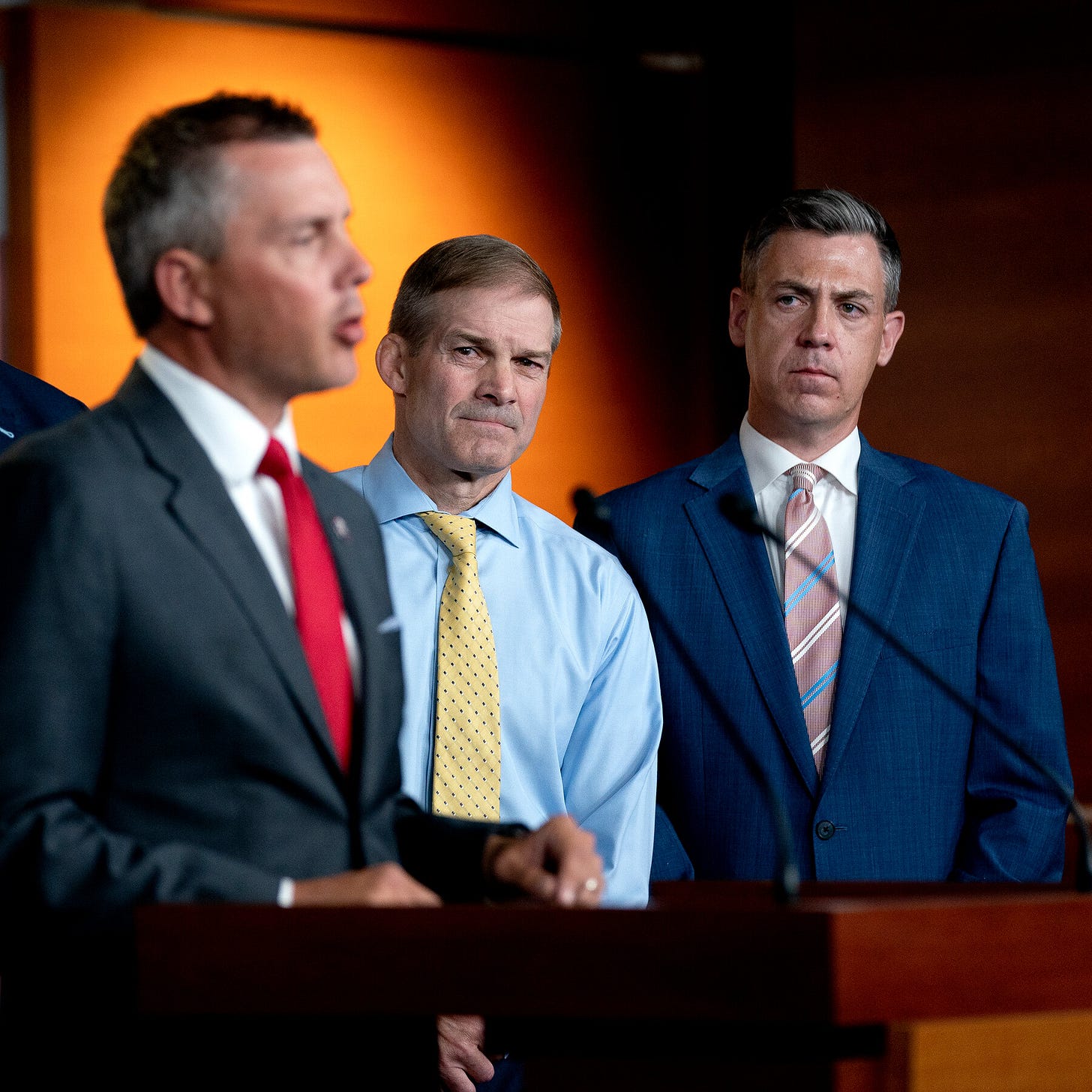Generational Change Coming to Indiana Politics
Future Senator Jim Banks may have a crop of young Republicans joining him on the House side–we'll find out tonight if that's the case
Today’s primaries in Indiana have been sleepy affairs–mostly. But following Election Day this November, the Hoosier State is poised to send a crop of elected officials to Washington who are generations younger than the ones currently there, no matter what happens tonight.
Kicking things off is the state’s marquee race, the mostly uneventful primary for Senate, which looks primed for a sweep by Congressman Jim Banks. All the action here was before the primary, where Banks’s allies successfully boxed former Indiana Governor Mitch Daniels out of the race before he even jumped in.
Since then, Banks had been running all-but unopposed, facing an anti-Trump egg baron, John Rust, in the primary, before Rust was unanimously booted by the state’s Supreme Court, because he was not a Republican. Now, all Banks has to do is remember to vote today and he’ll be a Senator in January. Knowing him, I’m confident he’ll have done that.
However, a trio of young Republicans are gunning to join Banks in federal office, all running in districts that are varying shades of red.
Up first in numerical order is Max Engling, who is primarying Congresswoman Victoria Spartz in Indiana’s 5th District. Spartz flirted with retirement all cycle long, before deciding to stick with her day job and run again–even though most of her senior staff slots remain open in her government offices. Engling was a high-level aide to to now-former Speaker Kevin McCarthy, whom Spartz voted to oust last year, leading us in large part to the chaos where we now find ourselves. State Rep. Chuck Goodrich is Spartz’s best-funded intra-party GOP challenger, however.
Up next is Gabe Whitley, who’s 26 and running in a deep-blue district against Congressman André Carson, who has been in office for years and is probably most notable for wanting to fight his fellow Democrat, Congressman Josh Gottheimer.
Whitley is most notable for the series of questions plaguing his fairly impressive fundraising. Per RRH Elections: “Whitley has raised $360K, including $120K in self-funding. That is a mediocre warchest overall, but a strong showing for a candidate in a hopeless district – pacing him ahead of many candidates with far better chances to win. However, where this cash came from for a 26-year old, running in a hopeless district, with no obvious independent wealth, is a very good question. His self-funding also comes in spite of Whitley having recently been sued for being delinquent on his car and credit card payments. Whitley is the subject of a complaint for donations above the legal maximum, and further media analysis of his campaign finance reports seems to suggest some of his “donors” may be fictitious. All this evidence would seem to add up to Whitley’s campaign being something other than a bona fide effort to be elected to Congress and potentially some sort of outright grifting or money laundering operation.”
Finally, in Indiana’s 8th District, Dominick Kavanaugh is also 26, but not running what seems to be a scam campaign like Whitley is. This race has seen massive spending due to former Congressman John Hostettler trying to mount a comeback. Pro-Israel groups have spent heavily to target him due to his anti-Israel record. Interestingly, outside groups have also been hammering another former congressman, Marlin Stutzman, in the 3rd District, as he mounts a comeback attempt as well.
In this race, State Sen. Mark Messmer has benefitted the most from outside air support, but with Messmer and Hostettler going back and forth, it’s easy to see how someone like Kavanaugh–who’s raised over half a million dollars, could squeeze past them both and win a plurality. After all, that’s basically how Senator Mike Braun won six years ago–and now he’s on a potential glide path to the Governor’s Mansion.
With Braun leaving federal office, however, Banks is set to succeed someone 26 years older than he is. The only question Indiana primary voters face when it comes to the generational shift is–just how big will it be?
We’ll find out in a few hours.


